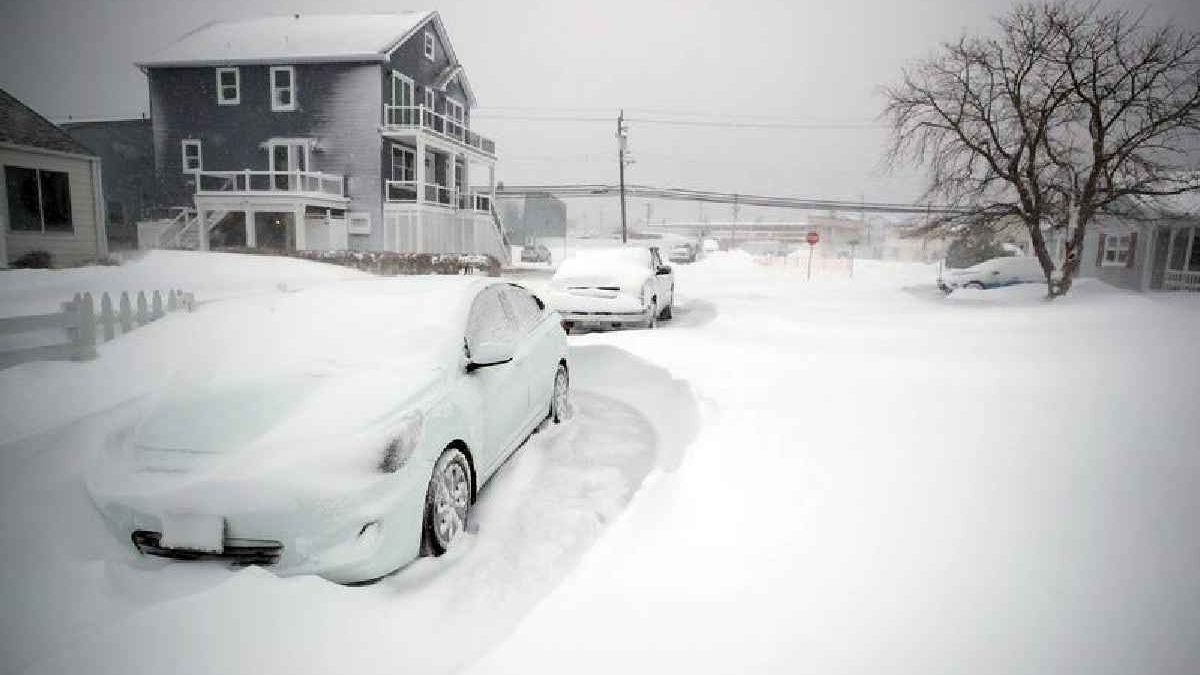Temperature in New Jersey: New Jersey’s coldest day on record and other extreme weather records that shook the state. Do you think it’s freezing in New Jersey today as the polar vortex tightens? Fortunately, you weren’t standing outside in River Vale, Bergen County, on January 5, 1904.
Table of Contents
New Jersey State Climatologist David
That’s when the air temperature fell to 34 degrees below zero, not including the wind chill. According to New Jersey State Climatologist David, that insanely cold reading is still the coldest temperature ever recorded in the Garden State. According to Rutgers University-based New Jersey State Climatologist David Robinson.
While some may be skeptical of such an extreme temperature in New Jersey, Robinson claims to have researched it and even used the original observation form to record that reading. According to his research, the temperature was consistent with the weather, topography, and other mercury readings reported in that state region.
Northeastern New Jersey
“That was a frigid morning in northeastern New Jersey,” Robinson said, noting that the River Vale climate station is in a unique location in the Hackensack River valley.
“A deep fresh snow cover, the valley location, adjacent to an ice-making pond, and a generally treeless landscape near the station all contributed to the excessive cold,” he said this week.
According to Robinson, the coldest month in New Jersey was February 1934, when the statewide average temperature was only 17.2 degrees. That is the average daily highs and lows in each state region. The coldest year on record in New Jersey was 1904, with a statewide average temperature of 47.8 degrees.
Since you’re interested, you may also read this article: Why America Has Become Obsessed With Wellness.
Arizona Desert to Swelter In 110-Degree Heat
You don’t have to be in the Arizona desert to swelter in 110-degree heat. It can get that hot in New Jersey, precisely what happened in the summer of 1936 when the Garden State recorded its highest temperature. On July 10 that year, the thermometer at a climate station in Old Bridge’s Runyon section reportedly reached 110 degrees, a record that has never remained broken
Since then, the closest scorcher was a 108-degree temperature reading at Newark International Airport on July 22, 2011, during a brutal summer heat wave in New Jersey. If you were wondering, that was the actual air temperature, not the “real-feel” heat index. The same goes for the 110-degree reading in Runyon.
According to the state climatologist, the most significant snowfall ever recorded in one storm in New Jersey was 34 inches in Cape May from February 11 to February 14, 1899. The fastest wind gust ever recorded in New Jersey was 108 miles per hour in Newark. According to USA Today and WeatherWise.org, the blast occurred in November 1950, during the Great Appalachian Storm.
Since you’re interested, you may also read this article: How to Conduct a Competitive Analysis
The National Weather Service
According to the National Weather Service, the most significant hail stone ever reported in New Jersey was 3 inches in diameter. On June 23, 1969, a baseball-sized hailstone fell in Cherry Hill, New Jersey. On August 19, 1939, in Tuckerton, Ocean County, New Jersey, 14.81 inches of rain fell in 24 hours. According to the state climatologist, county.
If you thought we got a lot of rain in the summer and fall of 2018, think again. None of those months matched New Jersey’s wettest month on record: August 2011.
Tropical Storm Irene, which drenched our region with torrential rain, significantly pushed the state’s average rainfall total that month to a whopping 15.67 inches. In addition, a series of rainstorms that hit New Jersey in the weeks leading up to Irene exacerbated the situation.
New Jersey’s Wettest Year
It should be fresh in your mind if you’re trying to recall New Jersey’s wettest year. According to data from the state climatologist’s office at Rutgers, New Jersey set a record for the most precipitation in a calendar year in 2018, with a statewide average of 64.30 inches of rain, melted snow, and melted snow sleet.
It was nearly 18 inches higher than the statewide average. Keep in mind that the state’s climate records date back to 1895. According to the National Weather Service, the hottest ocean temperature recorded off the Atlantic City coast was 83.3 degrees on August 10, 2016.
According to the National Weather Service, the hottest ocean temperature recorded off the Atlantic City coast was 83.3 degrees on August 10, 2016.
Conclusion:
February month in New Jersey is the coldest. From November 26 to March 22, the excellent season lasts 3.9 months, with an average daily high temperature of less than 51°F. February is the coldest month in Jersey, with an average low of 40°F and a high of 47°F.
Also Read: How to Safely use Public WiFi Networks

